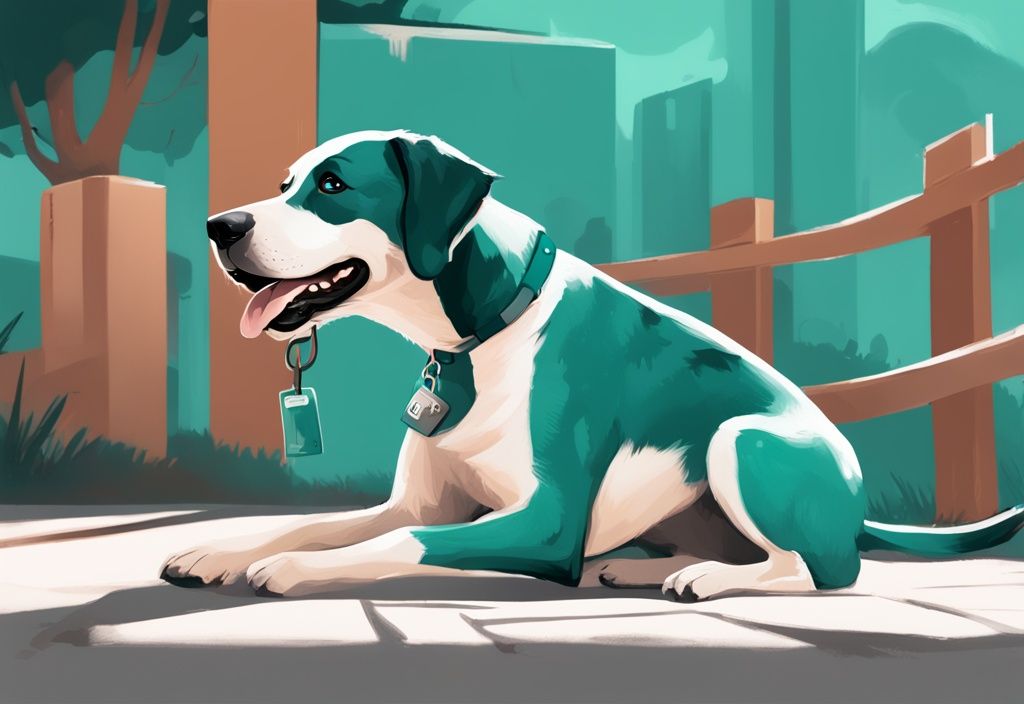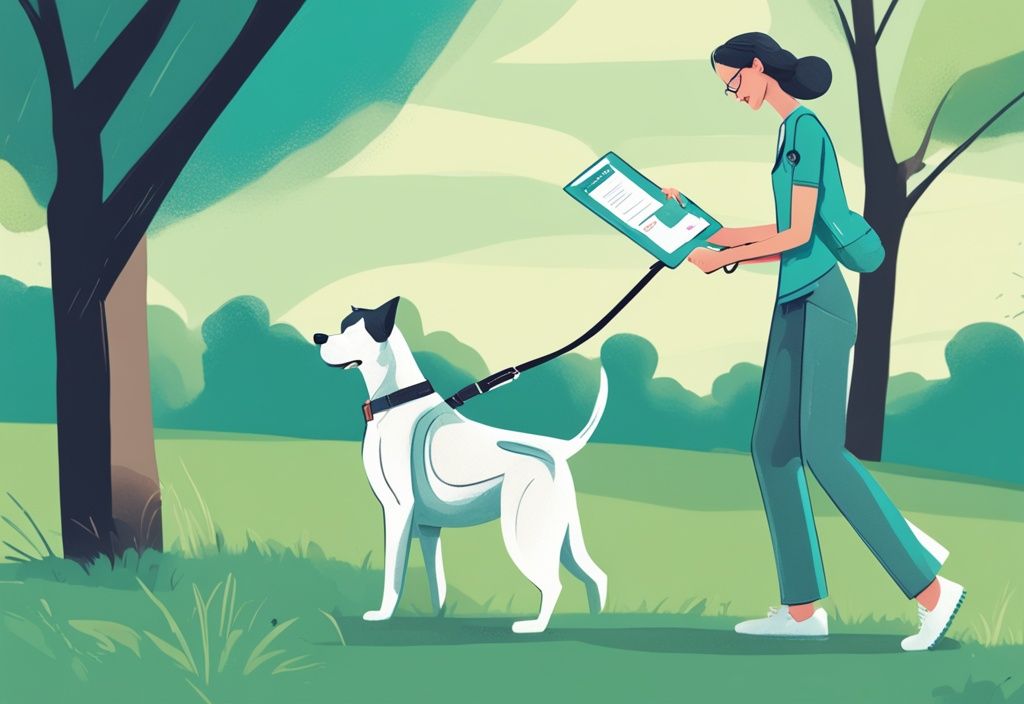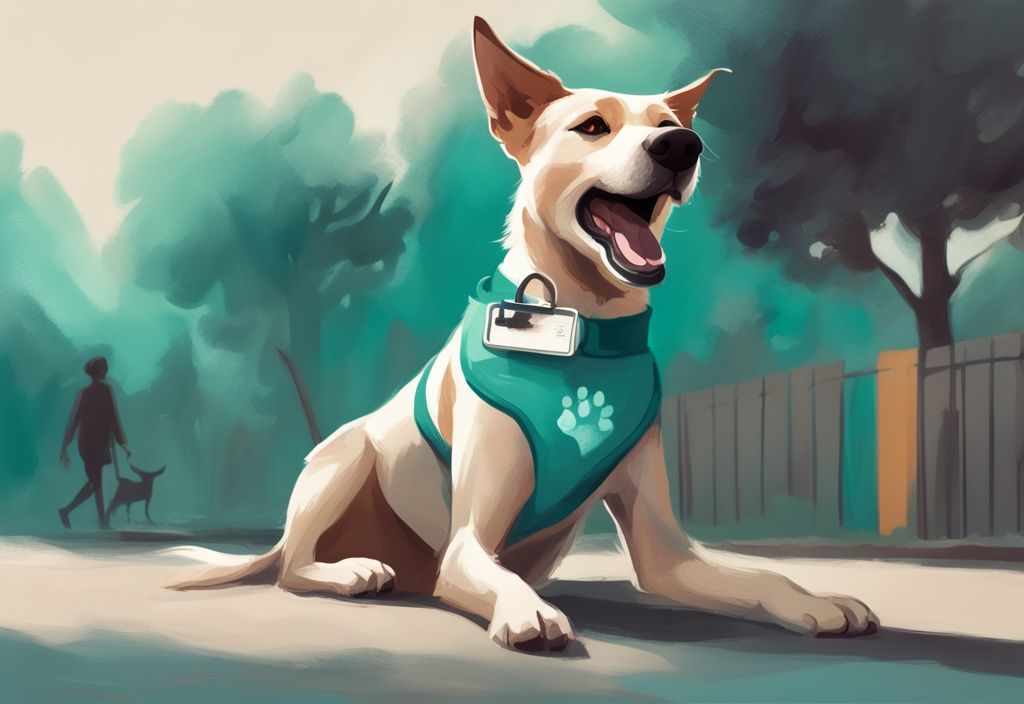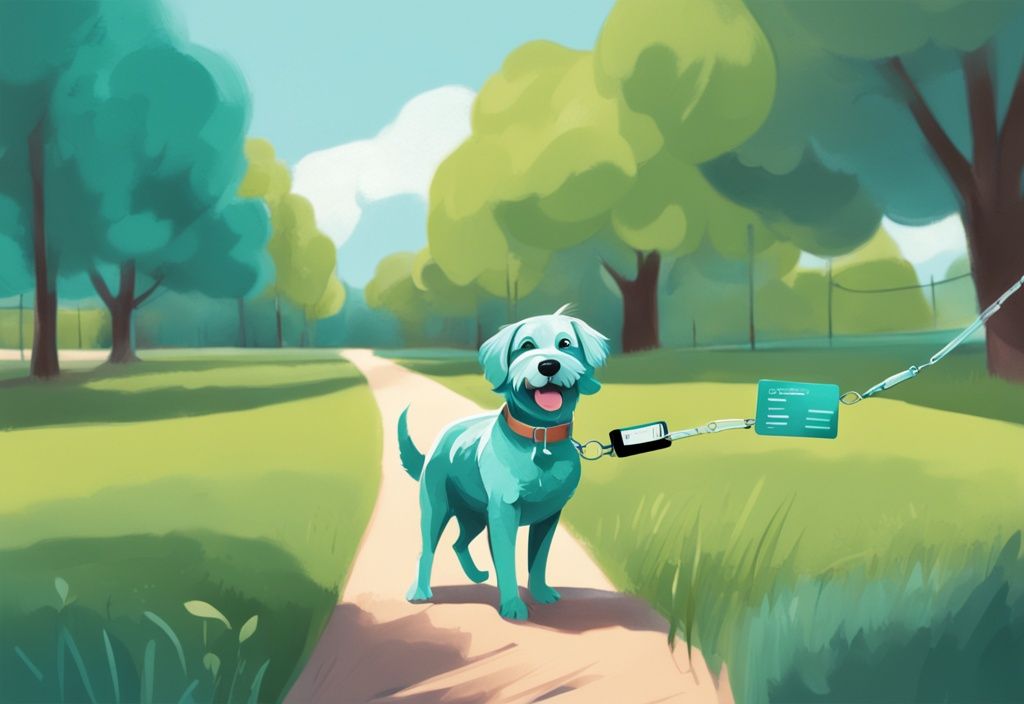Ever tried keeping a bouncy, playful puppy indoors? It’s like trying to hold back a tiny, four-legged whirlwind! But if you’re wondering “how long after a parvo shot can a dog go outside?” you’re asking the right question. As much as your pup is raring to explore the world, safety has to come first.
Hang one with me- we’re bursting the parvo bubble together in this article. Let’s uncover the importance of this vaccination, the ideal timeline for shots, and how to safely introduce your furry buddy to the outdoors. Pairing up with your vet and a handy-dandy vaccination schedule is the perfect leash to ensure your little explorer stays healthy.
Ready to embark on this pawsome adventure? Let’s bolt out of the safety gate and dive in! Max, my Border Collie, and Whiskers, my rescue cat, are wagging and purring in anticipation!
Understanding the Parvo Vaccine and Its Importance
What is the Parvo Vaccine?
The Parvo Vaccine is like a superhero for our furry friends! It’s specially crafted to shield dogs, especially those adorable puppies, from the incredibly contagious and sometimes deadly canine parvovirus. This nasty virus mainly targets the gastrointestinal system, causing severe symptoms such as vomiting, diarrhea, and a lack of appetite.
Imagine a tiny, harmless piece of the virus being used to train the dog’s immune system. That’s essentially what the vaccine does—it introduces the body to an innocuous version, prompting it to create antibodies. So, when the real villain shows up, the dog’s body is ready to fight it off effectively.
Why is the Parvo Vaccine Necessary?
You might wonder, “Why go through the trouble?” Well, vaccinating against parvovirus is crucial—trust me on this one. Puppies, with their playful little selves, are more at risk from this terrible disease. The canine parvovirus is like that uninvited guest who refuses to leave; it’s incredibly resilient and can survive in various environmental conditions. This means that even your backyard could potentially be a hotspot.
Now, you probably can’t wait to know about a key question: how long after parvo shot can dog go outside? Well, vets generally recommend starting the parvo vaccine series when your puppy is between six to eight weeks old. These initial shots are followed by booster doses every three weeks or so until the pup reaches 16 weeks. Following this schedule is super important as it ensures strong immunity builds up, protecting your bundle of fur during those critical early months of life.
So, before letting your adventurous little one roam around outside or play with other dogs, it’s vital to complete the vaccination series, ensuring their safety and well-being. After all, a happy, healthy puppy makes for an even happier pet parent!

Decoding the Parvo Vaccine Schedule for Puppies
Understanding when your puppy is safe to explore the great outdoors after their parvo shot is crucial for their health and well-being. This section delves into the recommended timelines and practices to keep your furry friend safe.
Recommended Timeframes for Parvo Vaccination
When it comes to safeguarding your puppy’s health, the vaccination schedule is your best friend. Puppies usually start their vaccinations at just eight weeks old.
After getting their first parvo shot, your pup will need a second vaccination at around ten weeks. Think of this like building up their superpowers; it’s all about boosting their immunity!
The DAPP vaccine is a comprehensive powerhouse that covers not just parvovirus, but also distemper, adenovirus, and parainfluenza. This gem is administered every three weeks until your pup hits 16 to 20 weeks.
Wondering how long after parvo shot can dog go outside? Well, it’s crucial to follow up with annual booster shots. These boosters keep your dog ready to face the world, ensuring their immune system remains robust.
Timing is everything! By sticking to the schedule, you’re helping your little furry friend develop immunity right on time. This significantly reduces the risk of them contracting any nasty bugs when they finally step outside.
Ultimately, following this vaccination schedule means your pup can safely experience the joys of the great outdoors sooner, rather than later. It’s like unlocking a new level in their adventurous puppy life!
When is it Safe for a Dog to Go Outside After Parvo Vaccination?
Understanding the Immunity Development Period
The development of immunity after vaccination is a critical phase for our furry friends. Most vaccines, including the parvo shot, take about two weeks to become fully effective. During this time, your puppy’s immune system is busy building up a strong defense against the virus. Think of it like assembling a superhero team to protect your pup!
So, after that crucial second round of the parvo vaccine, give it at least one more week before letting your puppy explore the big, wide world. This waiting period helps ensure the vaccine is working its magic, allowing those antibodies to reach their full power to fend off the dreaded canine parvovirus.
General Guidelines for Outdoor Exposure Post-Vaccination
Knowing how long after parvo shot can dog go outside is key to keeping your pup healthy and happy. Generally, it’s safe to start taking your puppy for walks one week after their second round of initial vaccinations.

But, let’s keep those walks to safe, controlled environments where the risk of encountering the virus is low.
Maybe you have a fenced backyard? That’s usually a great spot for your pup to get some fresh air and exercise, as long as it hasn’t been a hotspot for sick animals recently. This way, your puppy can enjoy some outdoor fun while you minimize their exposure to any potential pathogens.
Now, until your puppy has finished their full vaccination schedule, it’s smart to avoid places like public parks, dog parks, or any areas with lots of doggy traffic. These spots can be teeming with infectious diseases and we definitely don’t want that for your little one. By following these guidelines, you can protect your puppy while their immune system is still gearing up for full defense mode.
Remember, patience is key. In no time, your pup will be bounding around safely and joyfully, ready to take on the world!
Risks Associated with Premature Outdoor Exposure
Premature exposure to the outdoors can significantly increase the likelihood of your pup coming into contact with parvovirus and other highly contagious diseases. The parvovirus, in particular, is a stubborn little pest. It can survive in contaminated environments like soil for ages—sometimes up to a year! This long-standing threat is especially dangerous for unvaccinated and partially vaccinated puppies whose immune systems are still in the “training wheels” phase.
Imagine this: your playful pup, with a still-budding immune system, romping around in a park packed with traces of the virus. Scary, right? The outcome could be catastrophic, leading to severe gastrointestinal issues and even heartbreakingly, death.
Need for a Waiting Period Post-Vaccination
It’s crucial to let some time pass after that all-important parvo shot for your puppy’s internal defenses to gear up. Vaccines generally need about two weeks to work their magic, building up the essential antibodies to fend off the virus. During this window, your puppy is like a sponge, soaking up immune goodness but still vulnerable to pathogens.
By holding off on outdoor adventures, you dramatically lower the chances of your furry friend encountering something nasty during this vulnerable period. After all, this waiting period is like a protective bubble, ensuring your pup matures into a robust, happy dog. This way, their health and well-being are a priority right from the start, allowing for many joyful, tail-wagging moments in the future.
Interacting With Your Vet for a Safe Vaccine Schedule
Developing a Vaccination and Outdoor Plan with Your Veterinarian
Ensuring your puppy’s optimal health starts with a personalized vaccination schedule crafted by your veterinarian. Think of it as a bespoke tuxedo for your pup’s immune system, tailored to fit their needs perfectly. This detailed plan considers factors like maternal antibodies and overall health, ensuring full protection against pesky diseases like parvovirus. Moreover, it clarifies how long after parvo shot can dog go outside. Yes, you got it right—no more guessing games!
When you chat with your vet, don’t hesitate to dive into the nitty-gritty details about vaccination timing. Ask them the golden question: when is it safe for your puppy to start their outdoor adventures? Most vets will recommend taking it slow—allowing a waiting period after each shot to give that immune system time to gear up for anything the big, wide world might throw at it. This collaborative approach ensures Fluffy’s safety, avoiding the risks tied to premature outdoor escapades.
Monitoring Your Puppy for Vaccine Reactions
Keeping an eagle eye on your puppy after vaccinations is crucial. Monitor for signs like lethargy, fever, or swelling at the injection site. And let’s not forget—no one likes a loss of appetite, especially our furry friends! These could signal an atypical reaction to the vaccine.
If any of these pesky symptoms linger, don’t hesitate. Seek immediate guidance from your vet to nip any potential complications in the bud. For more insights on understanding your dog’s behavior, you might want to read about why your dog might chew his bone on you. A swift response keeps your puppy on track with their vaccination schedule. Plus, your vet can offer extra advice on how long after parvo shot can dog go outside without compromising their health.

FAQs
How long after the last parvo shot should I wait before taking my puppy outside?
- Picture this: Your little furball bouncing around, eager to explore the world. But hold your horses! You need to wait at least two weeks after the third round of booster shots, typically given at 16 weeks old. Let that immune system gear up fully to ward off the nasty parvovirus. Trust me, a bit of patience now will keep those outdoor adventures safe and carefree later.
What signs of adverse reaction should I look for post-vaccination?
- Keep an eye on your pup post-vaccination. If Max starts feeling down, with symptoms like lethargy, a slight fever, swelling at the injection site, or a loss of appetite, it’s time to call your vet. While most pups are champs, it’s always better to be safe and get professional advice if anything feels off.
Why is it crucial to adhere to the waiting period after the second parvo shot?
- The waiting period isn’t just another rule; it’s a vital step. This time allows your puppy’s immune system to mount a robust defense against parvovirus, which can be especially deadly. Think of it as a necessary pause to ensure your fluffy friend is suited up in the finest protective gear before stepping out into the big world.
Conclusion
- Ensuring your playful puppies stick to the recommended vaccination schedule and waiting period is absolutely vital for their health and safety. The parvo vaccine, in particular, is a superstar in this process, crafted to protect against the notorious and highly contagious canine parvovirus, as highlighted in various resources discussing the benefits of pet vaccinations, including those that protect against devastating diseases like parvo, rabies, and distemper here.
- Chatting with your vet to develop a tailored vaccination and outdoor plan is a fantastic way to ensure your furry friend gets the best protection. Depending on your puppy’s health, age, and the local parvo situation, vets usually suggest starting parvo vaccinations at six to eight weeks old, then continuing with boosters about every three weeks until they hit 16 weeks.
- Oh, the burning question of all puppy parents: “How long after parvo shot can dog go outside?” The answer is super important! You have to wait for the vaccine to work its magic. Typically, after the second vaccination, you should wait at least a week before letting your puppy out for limited exposure. As for public places, it’s best to wait two weeks after the final booster shot.
- Playing it safe is key to reducing health risks. This means steering clear of public spots, dog parks, and other high-traffic canine areas until your pup is fully vaccinated. That doesn’t mean all outdoor fun is off the table—controlled activities in your backyard can be really beneficial!
- Following these guidelines and keeping in touch with your vet gives your puppy a solid strategy for safe outdoor adventures. It’s all about ensuring their well-being, which in turn contributes to their healthy growth and loads of joyful, waggy-tailed moments.
